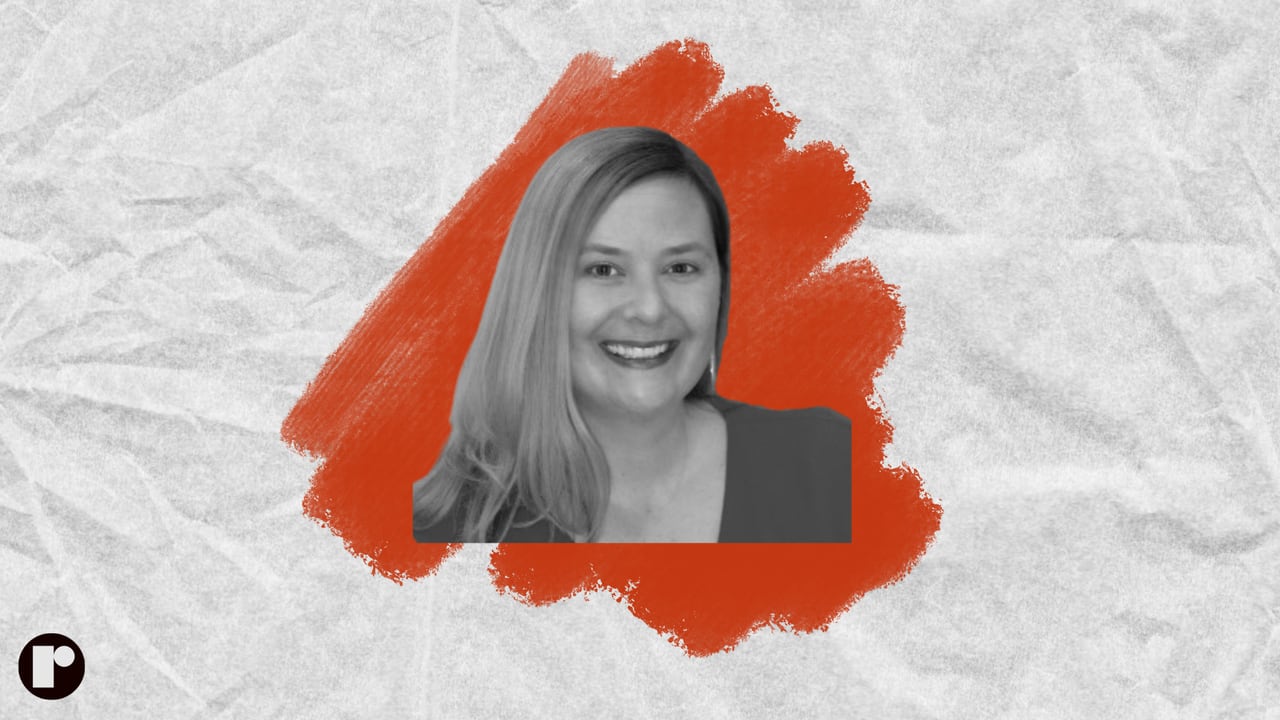Eradicating the Stigma: Chelsea Gulden
Editor’s note: For World AIDS Day 2023, Reckon interviewed people from across the U.S. about living with and battling the persistent stigma that people living with HIV/AIDS still confront today. From those deeply personal, wide-ranging interviews, we published profiles of five people about their journey and fight to eradicate stigma.
In August 2003, a 20-year-old Chelsea Gulden received two life-changing pieces of news: she was pregnant and HIV positive. Initially, she felt anger, fear, resentment and shame. Twenty years later, now 41, Gulden is the president and chief executive officer of the AIDS service organization RAIN in Charlotte, North Carolina, working to end the stigma surrounding the diagnosis.
“The fear was also for my child. My mom told me that she wasn’t going to raise them after I died. And at that time, I didn’t know whether a positive woman could give birth to a child that was not living with HIV,” Gulden tells Reckon.
Gulden contemplated abortion. However, after speaking with a doctor and learning that she could give birth to an HIV-negative child, she gave birth to her son in April 2004.
Gulden spent a lot of her pregnancy crying and angry. But after her son was born, she let some of that pain go. At that time, her doctor told her she could live up to 20 years with HIV. “So I was trying to get the most out of it because if I passed away in 15 years, that meant I’d leave behind a 14-year-old child. I didn’t want all of that rage and sadness overshadowing that, and I wanted him to remember me in a positive light,” she says. “That’s not to say that there weren’t ups and downs; there were days that hit me hard and others that I didn’t think about it at all.”
According to Gulden, every year, it got a little better living with her diagnosis. She jumped right into the field of HIV awareness and did a lot of healing early on in her career. Though it worked for her, she doesn’t recommend trying to do the work and heal at the same time.
“I used my journey and lived experience to encourage others living with HIV. The more open I was with my diagnosis, the more I healed and took my power back,” Gulden tells Reckon.
Today, although proud of the work she’s done, some topics will bring back trauma from the early days of her diagnosis. While her oldest somewhat knew about her status due to her public advocacy, Gulden has taken a more intentional approach with her two younger children on how and when to tell them.
“For the most part, I don’t have as many questions about what the future may hold for me living with HIV; I feel good and healthy. I’ve got a happy life, family, and friends that I love and love me. But if I think about if I were ever to be single and date again, that feels very daunting,” she says.
As for the stigmas surrounding HIV, Gulden wants society to stop fueling the notion that living with HIV equates to promiscuity, the fear-mongering about sleeping with positive folks, and for the public to understand that U=U (undetectable means untransmittable).
According to Gulden, ignorance fuels stigma, particularly in the South among cishet and communities of color, because it’s not talked about. Many experience reactions and responses to their diagnosis similar to those of the 90s.
“So when they go on a date and tell somebody that they’re living with HIV, people get angry or really nasty, and these disclosures are not going well for a lot of young cisgender women,” Gulden tells Reckon.
The RAIN CEO credits the way HIV is presented in media to fanning the flames of ignorance about living with HIV, noting that while TV/Film has gotten better at showing more accurate depictions, a lot of music still includes lyrics that can exacerbate stigma.
Because the experience of living with HIV varies by person, Gulden champions peer support groups where folks can see themselves reflected. She learned this early on in her diagnosis and started a youth support group fostering relationships that had healed them together.
“The culture is just different by age. So when I was diagnosed at 20, if I had gone to a support group with women in their 50s and 60s, that wouldn’t feel applicable to me. You know, they’re not dating in the same pools,” she says.
This World AIDS Day, Gulden says the best way others can show up for folks living with HIV is to speak out against falsehoods and correct misinformation.
“We really need those HIV-negative allies because people aren’t always going to say the ignorant things in front of me or others living with HIV. And sometimes, if they do and don’t know our status, it can feel awkward or intimidating for people living with HIV to have to be the ones to educate them,” she says.
“I wish people would stop saying AIDS. It’s a clinical term that should only be used by doctors. Everybody who’s living with HIV does not have AIDS, but everybody who has AIDS does have HIV. So, HIV is the inclusive term. There’s no need to try to separate people.”
